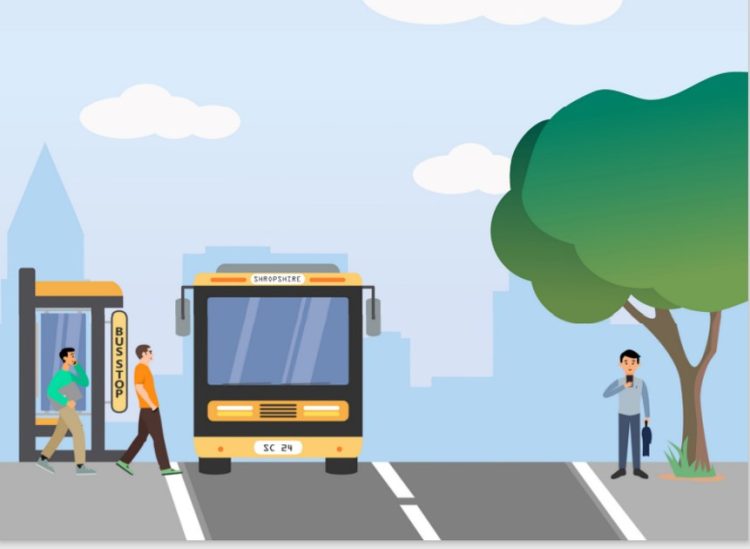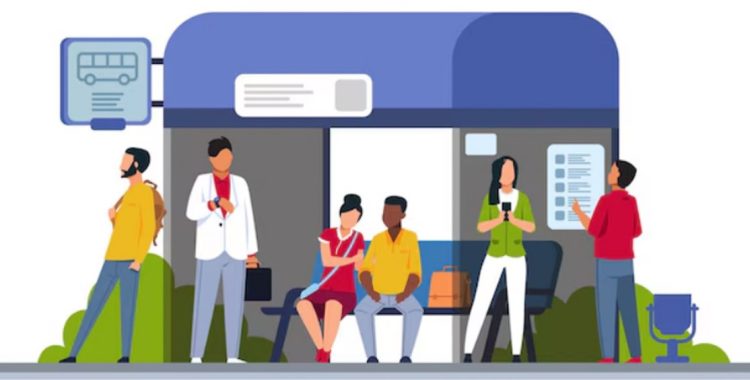Plans for transforming bus services across Shropshire published

Improvements are to be made to bus services across the Shropshire Council area in the coming months, along with a fare reduction on both Shrewsbury and Ludlow park and ride.
The changes are being made following the award of £1.8m of Network North funding by the Department for Transport (DfT). All are included in Shropshire Council’s refreshed Shropshire Bus Service Improvement Plan, which is published today (Wednesday 17 July 2024) and sets out the council’s vision for transforming bus travel in Shropshire in the coming months and years.
The improvements to be introduced this year – based on comments from councillors and local residents – are:
- Bus service frequency increase on services 64 (Market Drayton to Shrewsbury) and 436 (Bridgnorth to Shrewsbury).
- 401 Oswestry Town service – new route added to the existing service.
- 722 Ludlow park and ride (town service) – a standalone service to be provided, with an express shuttle from the ECO park and ride site to the railway station and town centre.
- Improvements to the other two Ludlow town services, 701 and new 702
- Shrewsbury park and ride – fare reduction from £2 return to £1 return, until March 2025.
- Ludlow park and ride – fare reduction from £2 return to £1 return, until March 2025.
The changes are set to be introduced over a three-to-four month period, from August 2024.
Shropshire Council’s new Connect On-Demand bus service will also be further expanded from January 2025 to include the new Weir Hill housing development, Shrewsbury Business Park and Salop Leisure in Shrewsbury, with a new bus to be used.
A new app will also be developed that can be used to book journeys, plan routes and more across the entire Shropshire local bus network.
The BSIP has cross-party support and is supported by bus operators through the Shropshire Bus Enhanced Partnership.
Aspirations for 2025 onward include extended hours and frequency for core services, and for both park and ride services, plus Sunday services, and the countywide roll-out of the Connect On-Demand service, along with electric buses and better bus information. Improvements to cross-border services and community transport are also proposed. It’s estimated that these improvements would cost £73.5m.

Ian Nellins, Shropshire Council’s deputy Leader and Cabinet member with responsibility for public transport – and chair of the cross-party working group – said:
“Shropshire’s refreshed Bus Service Improvement Plan (BSIP) sets out the vision for bus travel in Shropshire, highlighting a programme of investment to transform the current bus offer in the county, creating the opportunity for bus to become a realistic first choice of travel for residents and visitors, and unlocking all the associated benefits that would bring.
“I’m delighted that we’ll soon be making improvements to services across the county and I know these will be welcomed by many people. Subject to funding being made available we hope to see even more improvements in the coming years.
“The council and the Shropshire Bus Enhanced Partnership are working hard to deliver a transport system that the county will be proud of, one which allows people to prosper by connecting our communities to opportunities in employment, access to education, health housing and leisure.
“Public transport is essential for growth in the county and wider region and our BSIP sets out those plans that with investment could transform the current public transport offer in Shropshire. We believe that through this plan we have made an extremely strong
case to deliver a truly innovative and modern bus network.”
Shropshire Council’s cross-party public transport working group includes representatives from all political groups representing both urban and rural areas and has a strong influence on future plans and ambitions for public transport in Shropshire. The aim of the group is to influence plans to improve bus services throughout the council area, regardless of political boundaries.
Shropshire Council’s original BSIP was submitted in 2021 and has been refreshed to reflect what the council believes is required to transform the county’s bus services, and the ambitions of the DfT’s national bus strategy for England.
Further information
The context. The introduction to the BSIP explains that:
The bus network is facing serious challenges, since the outbreak of the Covid pandemic the majority of public transport bus operators are reporting that many of their bus services and especially those in the more rural locations are failing to recover to levels beyond 70% of pre-pandemic passenger usage.
This combined with a number of other local and national factors, (including but not limited to) ambition, fuel prices, inflation and a general increase in transport operational costs has severely impacted the viability of the commercial bus market in the county.
This has seen over 95% of bus services in the county become either supported fully under contract to the Council or through the Department for Transport revenue support programme. The Bus Service Improvement Plan highlights the potential investment opportunities to bring the council’s vision for buses to life.

